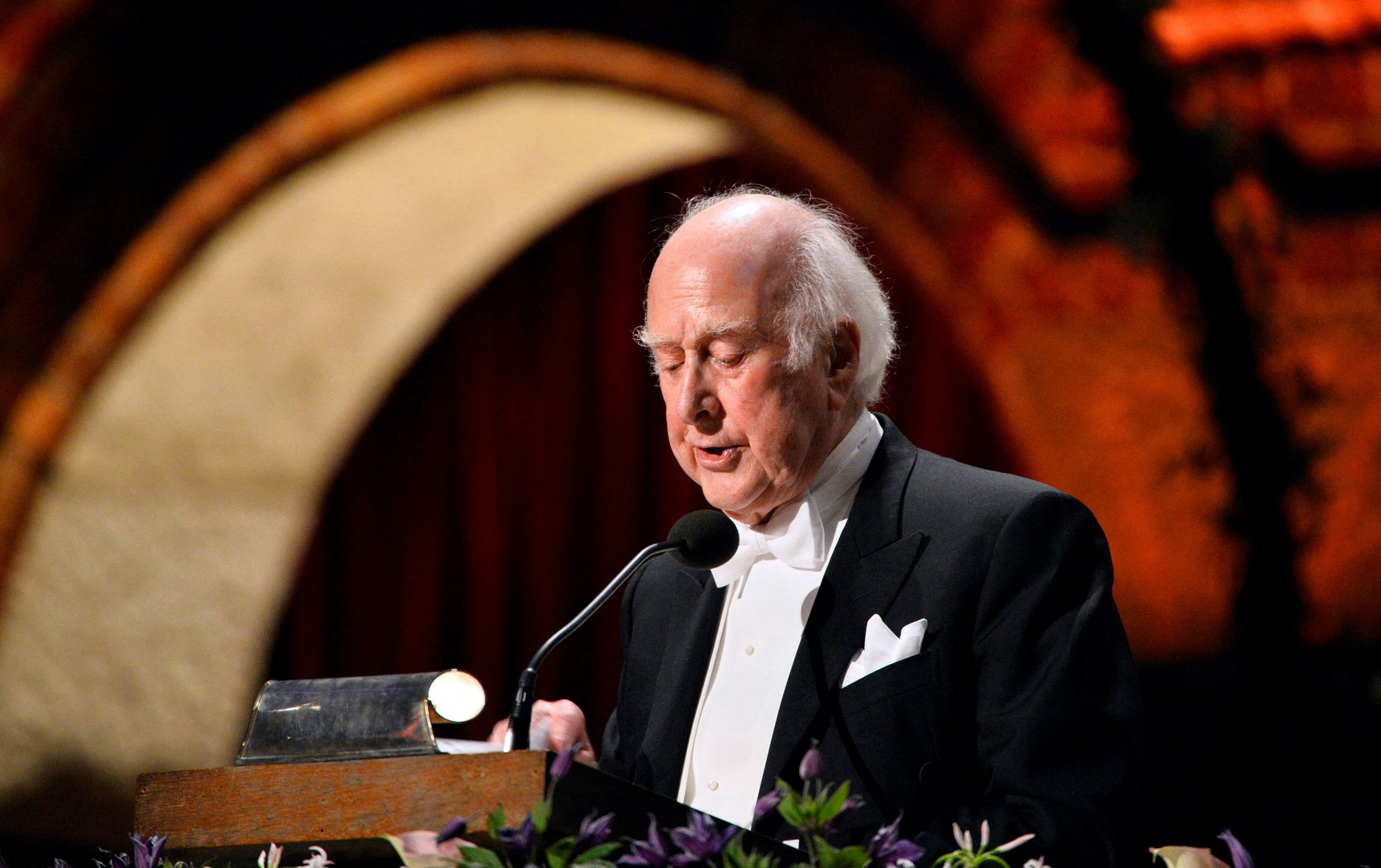Physicist Peter Higgs, whose theory of an undetected particle in the universe changed science and was vindicated by a Nobel prize-winning discovery half a century later, has died aged 94, the University of Edinburgh said.
The discovery of the Higgs boson in 2012 at the CERN research centre near Geneva was widely hailed as the biggest advance in knowledge about the cosmos for over 30 years, and pointed physics towards ideas that were once science fiction.
“For me personally it is just the confirmation of something I did 48 years ago, and it is very satisfying to be proved right in some way,” the British scientist told Reuters at the time.
“At the beginning, I had no expectation that I would still be alive when it happened.”
Edinburgh University, where Higgs held a professorial chair for many years, said he had passed away peacefully on Monday at home following a short illness.
“Peter Higgs was a remarkable individual – a truly gifted scientist whose vision and imagination have enriched our knowledge of the world that surrounds us,” said Professor Sir Peter Mathieson, the university Principal and Vice-Chancellor.
Higgs described himself as “incompetent” in the physics laboratory at school and at first preferred maths and chemistry. But inspired by quantum physicist Paul Dirac, who had attended the same school, he went on to specialise in theoretical physics.
What came to be known as the Higgs boson would solve the riddle of where several fundamental particles get their mass from: by interacting with the invisible “Higgs field” that pervades space.
That interaction, known as the “Brout-Englert-Higgs” mechanism, won Higgs and Belgium’s Francois Englert the Nobel prize in physics in 2013. Englert’s collaborator Robert Brout died in 2011.
‘AN INCREDIBLE THING’
In 1964, Higgs’ first paper on the model was rejected by an academic physics journal at CERN as being “of no relevance to physics”. His revised paper, although published weeks after Englert and Brout’s, was the first to explicitly predict the existence of a new particle.
“Over a weekend … I gradually realised that I knew two things that had to be brought together,” he said. “I had to go back to my office on the Monday and check that I hadn’t made a mistake about this.”
The tantalising vision promised to fill a gap in the “Standard Model” – the basic theoretical framework of physics – if only the particle’s existence could be proven.
For nearly three decades, physicists at CERN and at Fermilab in Chicago replicated the “Big Bang” by smashing particles together, hoping to glimpse the Higgs boson in the resulting mini-explosions.
CERN’s massive Large Hadron Collider finally proved to be the sledgehammer needed to crack the nut, and in 2012 two experiments there independently found the Higgs boson.
Englert and Higgs were in the packed auditorium at CERN to hear the announcement of the discovery, while hundreds of thousands watched online.
“We have reached a milestone in our understanding of nature,” CERN Director General Rolf Heuer said, to a roar of applause.
Higgs, clearly overwhelmed, his eyes welling up, told his fellow researchers: “It is an incredible thing that it has happened in my lifetime.”
‘WHAT AWARD?’
The Higgs boson completed the Standard Model, but fully understanding it is a work in progress. Its discovery allowed theoreticians to turn their attention to the vast portion of the universe that remained unexplained, as well as esoteric ideas such as the possibility of parallel universes.
An atheist, Higgs loathed the nickname “the God particle”, which headline writers frequently bestowed on the boson that bore his name.
He had strong views on what was good and bad about science and resigned from a movement for nuclear disarmament when it began campaigning against the harnessing of nuclear energy.
In 1962 Higgs married Jody Williamson, an American linguist and nuclear disarmament campaigner, who died in 2008. They had two sons.
Higgs was modest about his achievements and shy of the media. In an interview on the Nobel prize website, he recounted how, on the morning that the 2013 Nobel announcement was due, he had anticipated media attention and taken steps to avoid it.
He left his house in Edinburgh, where he was emeritus professor at the university, and went for a walk around the harbour, and then to lunch and an art exhibition.
On his way home, a former neighbour congratulated him on his award.
“I said: ‘What award?’” he recalled, chuckling.







Click here to change your cookie preferences